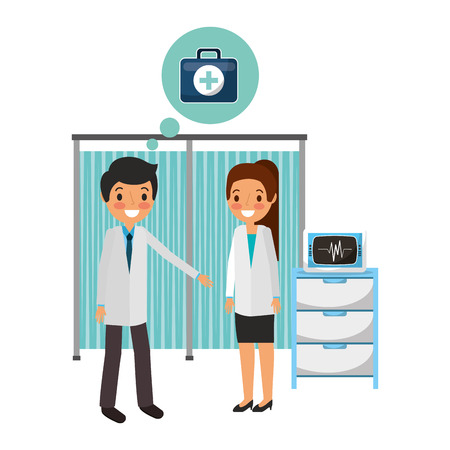Spotting Signs of Illness in Newborns
As a new parent in the UK, it’s completely normal to feel a bit anxious about your baby’s health—especially when you’re still learning what is typical for newborns and what might signal something more serious. In those early weeks, every little cough or cry can make you question if your baby is well. Many parents find themselves constantly googling symptoms and wondering whether to ring their health visitor or GP. While most newborn behaviour is part of the usual adjustment to life outside the womb, it’s important to recognise when things aren’t quite right.
Common symptoms like sneezing, hiccups, and even occasional grunting are usually harmless and part of normal development. However, there are certain signs that should raise your concern. For instance, if your baby seems unusually sleepy, struggles to feed, develops a high temperature (over 38°C), or has trouble breathing, it’s time to take action. Trusting your instincts as a parent is key—if something feels off, don’t hesitate to seek advice.
It can also be helpful to keep a diary of any unusual symptoms or changes in your baby’s behaviour. This record can be invaluable when discussing concerns with your health visitor or GP, helping them get a clearer picture of what’s happening. Remember, in the UK you’re not expected to know everything straight away; asking questions and seeking reassurance is all part of the learning curve for new mums and dads.
2. Everyday Concerns: What’s Normal and What’s Not?
As a new parent in the UK, it’s perfectly normal to feel unsure about what’s typical for your newborn and what might be a sign of illness. I remember those early days—constantly checking nappies, wondering if my baby was feeding enough, and questioning every little cry. Here’s a practical guide to help you recognise what’s generally normal, what requires keeping an eye on, and when it’s time to contact your health visitor or GP.
Feeding
It’s common for newborns to feed frequently, whether breastfed or formula-fed. In the first few weeks, 8-12 feeds in 24 hours is usual. However, watch out for signs that could indicate a problem:
| Normal | Monitor | Contact Health Visitor/GP |
|---|---|---|
| Frequent feeds (every 2–3 hours) | Sudden increase in fussiness during feeds | Poor feeding or refusing feeds for more than one feed |
| Waking for feeds | Shorter or much longer feeds than usual | No wet nappies for 12+ hours |
Nappies
Wet and dirty nappies are good indicators of hydration and digestion. Expect at least 6 wet nappies per day after the first week and regular soft stools.
| Normal | Monitor | Contact Health Visitor/GP |
|---|---|---|
| Pale yellow urine, soft yellow stools | Slightly fewer wet nappies for one day | No wet nappies for over 12 hours; red/orange stains; very runny or blood-stained poo |
Sleep & Crying
Newborns sleep a lot—often up to 16–18 hours a day—but rarely in long stretches. Some fussiness is normal, but excessive crying can be concerning.
| Normal | Monitor | Contact Health Visitor/GP |
|---|---|---|
| Crying less than 3 hours/day (usually evenings) | Crying more than usual without obvious reason | Crying inconsolably for several hours; weak or high-pitched cry; lethargy/difficulty waking baby |
| Naps between feeds; wakes easily for feeds/cuddles | Trouble settling even after feeding/changing/cuddles | Limpness or unresponsiveness during sleep/wake times |
Temperature & General Appearance
A baby’s temperature should be around 36.5°C–37.5°C (97.7°F–99.5°F). Trust your instincts—if something feels “off”, it’s always okay to ask for advice.
| Normal | Monitor | Contact Health Visitor/GP |
|---|---|---|
| Warm hands and feet; alert between sleeps; steady breathing | Mildly cool or warm extremities; slightly flushed skin with no other symptoms | Temperature below 36°C or above 38°C; blue lips/tongue; persistent vomiting; rapid or laboured breathing; floppy limbs; unresponsive behaviour |
If in doubt, trust your gut!
I’ve found that no concern is ever too small when it comes to your baby. If you’re worried, speak to your health visitor, ring your GP surgery, or call NHS 111 for advice—especially outside regular hours. It’s always better to check than to worry alone.

3. Red Flags: When to Seek Immediate Help
As a new parent, it’s natural to worry about your baby’s health—especially when you spot something unusual. While many newborn concerns can wait for your Health Visitor or GP, there are some red flags you should never ignore. Recognising these serious symptoms can make all the difference in getting timely help for your little one.
Serious Symptoms to Watch Out For
- Difficulty Breathing: If your baby is breathing very fast, grunting, making strange noises with each breath, or their skin around the ribs is sucking in, this could signal a respiratory problem.
- Persistent Vomiting: If your newborn cannot keep any feeds down and is repeatedly vomiting, especially if the vomit is green or has blood in it, this needs urgent attention.
- High Fever: Any temperature of 38°C (100.4°F) or above in a baby under three months old is always taken seriously in the UK. Don’t wait and see—seek medical advice straight away.
- Floppy or Unresponsive Baby: If your baby seems unusually floppy, difficult to wake, isn’t feeding at all, or doesn’t seem interested in anything going on around them, this is an emergency.
Other Concerning Signs
- Pale, blotchy, or blue skin and lips
- A seizure or fit
- No wet nappies for 12 hours or more
- A rash that doesn’t fade when pressed with a glass
Who to Contact and When
If you notice any of these red flags:
– NHS 111: Call NHS 111 if you’re unsure what to do. They’ll guide you on the next steps.
– Your GP: If your GP surgery is open and the symptoms are urgent but not immediately life-threatening, phone them directly.
– A&E (Accident & Emergency): If your baby has severe breathing difficulties, is unresponsive/floppy, has a seizure, or develops a non-blanching rash (one that doesn’t fade under pressure), go straight to A&E or call 999 for an ambulance.
No one minds if you’re being cautious—it’s always better to be safe than sorry when it comes to your newborn’s health. Trust your instincts; if something feels wrong, seek help without delay.
4. The Role of Your Health Visitor
As a new parent in the UK, you’ll soon become familiar with your Health Visitor—an experienced nurse or midwife who specialises in supporting families with young children. Health Visitors are a unique part of the NHS system, and their role is all about promoting your child’s health and development from birth to five years old.
What Does a Health Visitor Do?
Your Health Visitor will visit you at home after your baby is born, usually between 10 to 14 days postpartum. They offer advice on everything from feeding and sleep to safe sleeping environments and immunisations. Most importantly, they’re there to spot any early signs of illness or developmental concerns and can guide you on when medical attention might be needed.
How Health Visitors Support Parents
| Area of Support | Examples |
|---|---|
| Feeding advice | Breastfeeding support, formula guidance, weaning tips |
| Infant care | Cord care, bathing, nappy rash prevention |
| Mental health | Postnatal depression screening, emotional wellbeing check-ins |
| Developmental checks | Tracking milestones, spotting delays or concerns early on |
| Health education | Vaccination schedules, sleep safety, accident prevention |
| Signposting services | Referrals to GPs, speech therapists, children’s centres as needed |
When Should You Contact Your Health Visitor?
If you ever feel unsure about your newborn’s health but it’s not an emergency, your Health Visitor is often your first port of call. Here are some situations where reaching out makes sense:
- You notice changes in your baby’s feeding patterns or weight gain.
- Your baby seems unusually sleepy or irritable for no clear reason.
- You’re worried about rashes or skin changes that aren’t urgent but don’t seem right.
- You need advice on common issues like colic, reflux, or constipation.
- You feel overwhelmed or anxious about caring for your baby.
- You have questions about vaccination schedules or safe sleeping practices.
Your Health Visitor can give practical tips over the phone, arrange a home visit if needed, and let you know when it’s time to contact your GP or seek urgent help. As a new mum myself, I found my Health Visitor was always happy to reassure me—even when my worries felt small. Remember: no question is too trivial when it comes to your baby’s wellbeing!
5. Contacting Your GP: What to Expect
If you’re worried about your newborn’s health and feel it’s more than what your health visitor can support, it’s time to contact your GP. I remember the first time I had to do this – my baby had a high temperature and wasn’t feeding well, and although I felt anxious, knowing what to expect made things a bit easier.
How to Reach Your GP
Most GP surgeries in the UK offer several ways to book an appointment: by phone, online, or sometimes via an app like Patient Access or NHS App. For newborn concerns, mention your baby’s age and symptoms clearly when you call – receptionists are trained to prioritise very young babies, so you may be offered a same-day slot. If it’s outside surgery hours, the recorded message will tell you how to access out-of-hours services or NHS 111 for advice.
What Information to Prepare
- Your baby’s red book (Personal Child Health Record) – GPs often ask for recent weights, vaccinations, and any previous notes.
- A clear list of symptoms: When did they start? Are they getting worse?
- Details of your baby’s feeding (breast or bottle), nappy output (wet/dirty nappies), temperature readings if taken, and whether your little one is more sleepy or irritable than usual.
During the Appointment
The GP will usually want to see your baby in person. They’ll check vital signs (like temperature and breathing rate), examine your little one carefully, and ask detailed questions about their feeding and behaviour. Sometimes they may weigh your baby again or ask you about development milestones. If necessary, they might refer you directly to hospital for further checks – don’t panic; this is just to be extra safe with newborns.
After Your Visit
You’ll likely leave with advice on what signs to monitor at home, or maybe a prescription if needed. The GP might also update your baby’s red book or arrange a follow-up with your health visitor. Remember, no question is too small when it comes to newborns – trust your instincts and don’t hesitate to ring back if things change.
6. Trusting Your Instincts as a Parent
Becoming a parent, especially for the first time, is both exciting and daunting. There’s so much to learn, and it can sometimes feel overwhelming when your newborn seems unwell. One of the most valuable lessons I’ve learnt as a new mum here in the UK is to trust my instincts. You know your baby better than anyone else, even if you’re just getting to know them yourself. If something doesn’t seem quite right—perhaps your little one is more unsettled than usual or you just have that nagging feeling—don’t be afraid to listen to your gut.
Reassurance from Real Experiences
I remember during those first few weeks at home with my son, I doubted myself constantly. Was I worrying too much? Was this normal newborn behaviour or something more? Every parent goes through this, and it’s completely natural. When my baby developed a slight temperature, I hesitated before calling our health visitor—worried I’d be seen as overreacting. But when I finally picked up the phone, our health visitor was so kind and supportive. She reassured me that no question is ever too small and praised me for being attentive. That encouragement made all the difference and gave me more confidence in my own judgement.
It’s Always Okay to Ask for Help
In the UK, we’re lucky to have health visitors and GPs who are there specifically to support families with young children. They really do want to help, whether it’s your first baby or your third. Never feel like you’re wasting their time; they would much rather you called about something minor than missed something important because you were unsure. Asking for advice shows how much you care.
Building Confidence Over Time
As time goes on, you’ll notice patterns in your baby’s behaviour and become more confident recognising what’s typical for them. Don’t be hard on yourself if you still worry—that’s what makes you a caring parent! Remember, reaching out for help or second opinions is not only sensible but also part of looking after both your baby and your own peace of mind.
Trust yourself—you are exactly the parent your baby needs. And if ever in doubt, pick up the phone or pop into your local surgery; seeking support is a sign of strength, not weakness.

